
Today the world is obsessed with the threat of extremism. The menace of the Islamic State terrorists and their affiliates is touched all over the world. However, the international community should not be distracted from other extremists who are manipulating Western politicians under the guise of democracy and modernity.
While the world’s eyes are focused on and rising tensions in the Middle East, a former terrorist group from Iran is tromping through the halls of Congress, and garnering support from some of America’s most powerful and prominent politicians and officials, writes Sean Nevins of Mint Press News in Washington. [1]
In his documented, investigated article Nevins warns that the Mujahedin Khalq Organization (the MKO/ Mek) is not actually what it claims to be. He explores “how does a group go from being one of the most dangerous terrorist organizations in the world to having an office on Pennsylvania Avenue in Washington, D.C., with backing from the likes of the former U.S. Ambassador to the U.N. John Bolton and former Director of Homeland Security Tom Ridge, among many others” . Based on documents and reports of the FBI, Human Rights Watch, and the Rand Corporation, Sean Nevins conclude that “not only is it an opposition group to the current Iranian regime, but it is a kind of cult” verifying the reality of the MKO’s anti-American attitudes by the group’s own journals. [2]
This is not the first warning to Western audience on the threat of the MKO cult. Many other journalists, historians, scholars and etc. have so far cautioned about the risks of supporting a group with a dark, violent history of extremist acts and a cult-like nature. The extremism that the world is exposed to by the side of the MKO can be much more destructive than the one from ISIS or AlQaida because the MKO is disguising its cult-like beliefs and policy under pro-democracy and pro-feminism slogans.
The case of the MKO indicates that the roots of extremism are based in cultic manipulation not religious beliefs. Mohammed Jebara who is chief Imam and resident scholar at the Cordova Spiritual Education and writer of books and articles on Islam, suggests that the extremism is originated from cult-like exploitation. “Most cults have two main distinguishing characteristics: A great opposition to critical thinking with an insistence on blindly following a set of dogmatic ideals, all the while giving their followers the false sense of self-determination and free choice,” writes Jebara.”Secondly, isolating their devotees with threats of heavy penalties, including death, for “apostasy” through “deviation” from their “path.” [3]
Jebara describes extremist ideas as “puritanical, self-righteous, judgmental viewpoints” that “always allege to be the ultimate truth’’. He notifies, “The modern extremists are not a new phenomenon, neither to the Islamic world, nor to the world at large. Puritanical sects have existed from ancient times, as fringes, and have even overtaken the mainstream of some world religions.” [4]
“If someone can be induced to believe in irrational, ludicrous and intolerant ideas, they can be led to violently enforce and act upon them, “concludes Imam Mohammad Jebara. His description of cultist extremists perfectly meets the substance of the Cult of Rajavi (the MKO). [5]
The peak of irrational, ludicrous and intolerant ideas was demonstrated in June 2003 after the arrest of the group leader Maryam Rajavi by the French Police. To protest her arrest, a number of her brainwashed followers and sympathizers committed the most irrational act; they set themselves on fire in European cities. Two women burned to death and others were paralyzed.
One of the two dead women was Neda Hassani who was in her 20s when she set herself alight outside French Embassy in London. Neda was a Canadian citizen with links to the MKO. After the arrest of the cult leader, she was indoctrinated to commit self-immolation in order to put pressure of French Police to liberate Maryam Rajavi. [6]
Prior to 2003, suicide operations to target Iranian officials and civilians were also carried out by the group terror teams as well as cross border terror acts against Iran.
Furthermore, as it was mentioned on the top of this post, cult-like treatment of members inside the MKO camps have been reported by several international bodies and investigated reports. Thus, what is crystal clear is that the MKO is not a democratic secular group. It is definitely an extremist cult of personality and is as dangerous as or even more dangerous than ISIS or al Qaida.
Mazda Parsi
Sources:
[1]Nevins, Sean, How To Stop Being Terrorists: A Guide For ISIS, Courtesy Of The MEK, Mint Press News, January 21, 2015
[2] ibid
[3] Jebara, Mohamad, Imam Mohamad Jebara: Fruits of the tree of extremism, Ottawa Citizen, February 6, 2015
[4] ibid
[5] ibid
[6]BBC News, Fourth person in fire protest, June 20, 2003

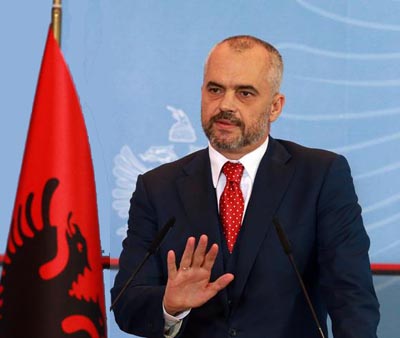
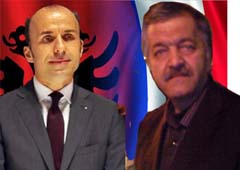 conditions of brainwashing and physical abuse. I can say from first-hand experience that Massoud Rajavi and Maryam Rajavi have created a new version of slavery in the camps which were gifted to them by Saddam Hussain, and have used the enslaved members for purely personal benefit.
conditions of brainwashing and physical abuse. I can say from first-hand experience that Massoud Rajavi and Maryam Rajavi have created a new version of slavery in the camps which were gifted to them by Saddam Hussain, and have used the enslaved members for purely personal benefit.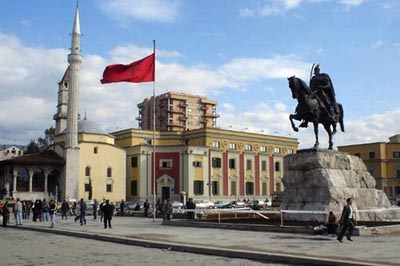 cult organisation in that country. There is strong evidence that the MEK has bought land and property just outside Tirana in order to create a closed cult enclave similar to ones in Iraq, and that it is using coercion to keep refugees captive there where they are subject to systematic human rights abuses outside the supervision of the Albanian authorities.
cult organisation in that country. There is strong evidence that the MEK has bought land and property just outside Tirana in order to create a closed cult enclave similar to ones in Iraq, and that it is using coercion to keep refugees captive there where they are subject to systematic human rights abuses outside the supervision of the Albanian authorities.
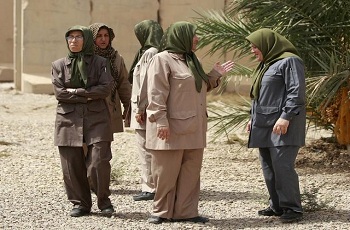
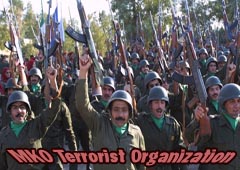 ssible because in 2003 the US army captured, disarmed and confined them to a single camp in Iraq), is now lobbying to have them re-armed.
ssible because in 2003 the US army captured, disarmed and confined them to a single camp in Iraq), is now lobbying to have them re-armed.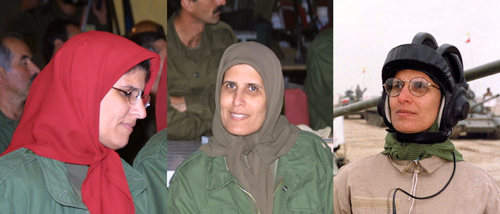 the cult hegemony anymore. In order to keep members under the cult control in Albania, the MKO needed to use its most reliable servants.
the cult hegemony anymore. In order to keep members under the cult control in Albania, the MKO needed to use its most reliable servants.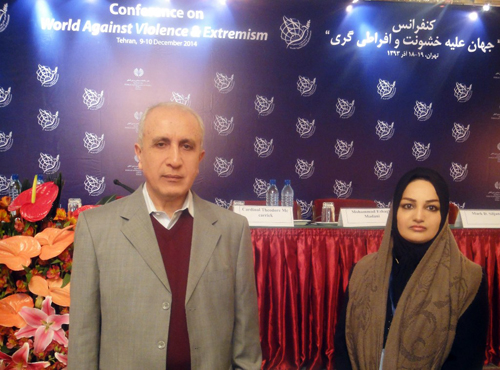
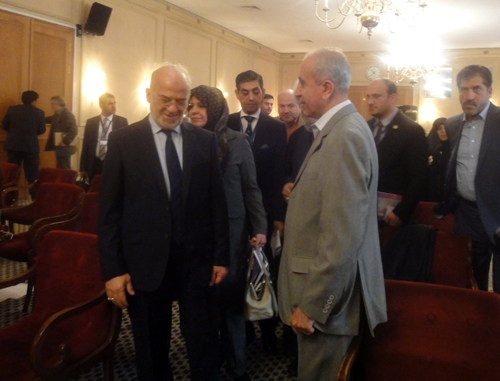
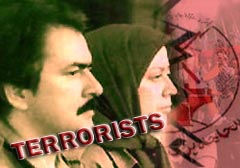 Mojahedin of Iran (PMOI), Mojahedin-e Khalq Organization (MKO), but is best known by the multifaceted National Council of Resistance of Iran (NCRI). Through social media, the group spams most Iran-related hashtags with their propaganda, bankroll prominent U.S. officials to advocate on their behalf as the “democratic alternative” to the Islamic Republic of Iran, and even re-opened an office a block from the White House where they hired former Senator Robert Torricelli (D-N.J.) as their legal representative.
Mojahedin of Iran (PMOI), Mojahedin-e Khalq Organization (MKO), but is best known by the multifaceted National Council of Resistance of Iran (NCRI). Through social media, the group spams most Iran-related hashtags with their propaganda, bankroll prominent U.S. officials to advocate on their behalf as the “democratic alternative” to the Islamic Republic of Iran, and even re-opened an office a block from the White House where they hired former Senator Robert Torricelli (D-N.J.) as their legal representative.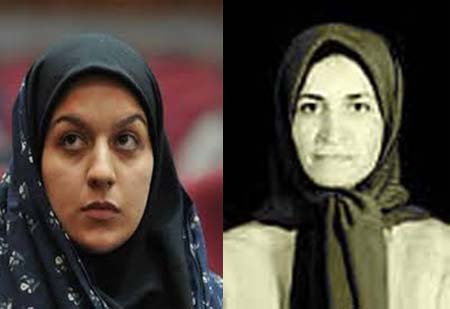 Following the execution of Reihaneh Jabbari the Iranian girl convicted of murdering a man Morteza Sarbandari, Maryam Rajavi called for an independent international probe into her execution. This was not the first reaction of the MKO propaganda on the case of Reyhaneh. The group’s media had launched a wide propaganda about her trial. However, their propaganda pushed her towards execution.
Following the execution of Reihaneh Jabbari the Iranian girl convicted of murdering a man Morteza Sarbandari, Maryam Rajavi called for an independent international probe into her execution. This was not the first reaction of the MKO propaganda on the case of Reyhaneh. The group’s media had launched a wide propaganda about her trial. However, their propaganda pushed her towards execution.